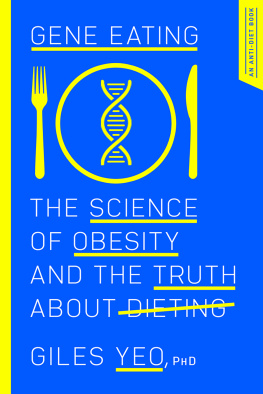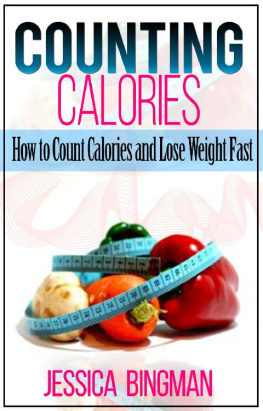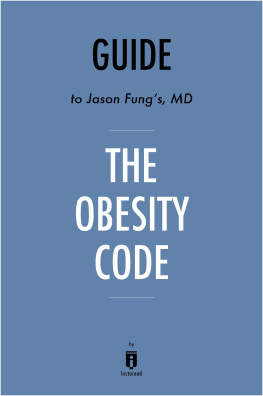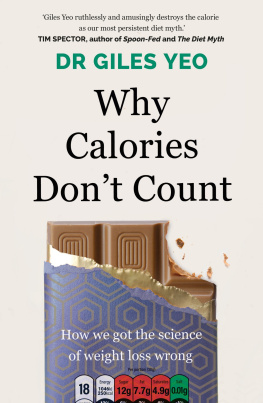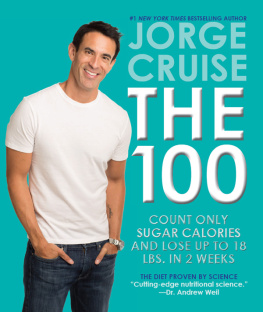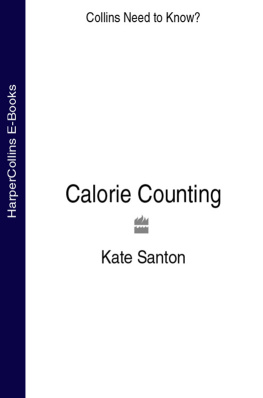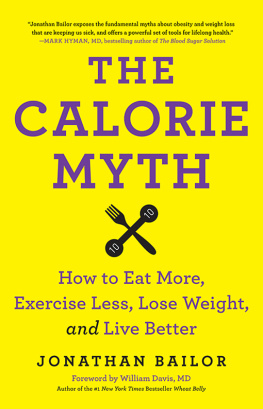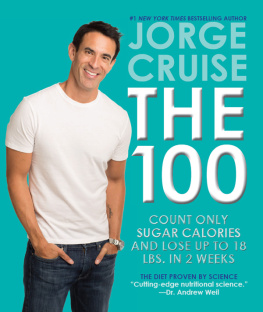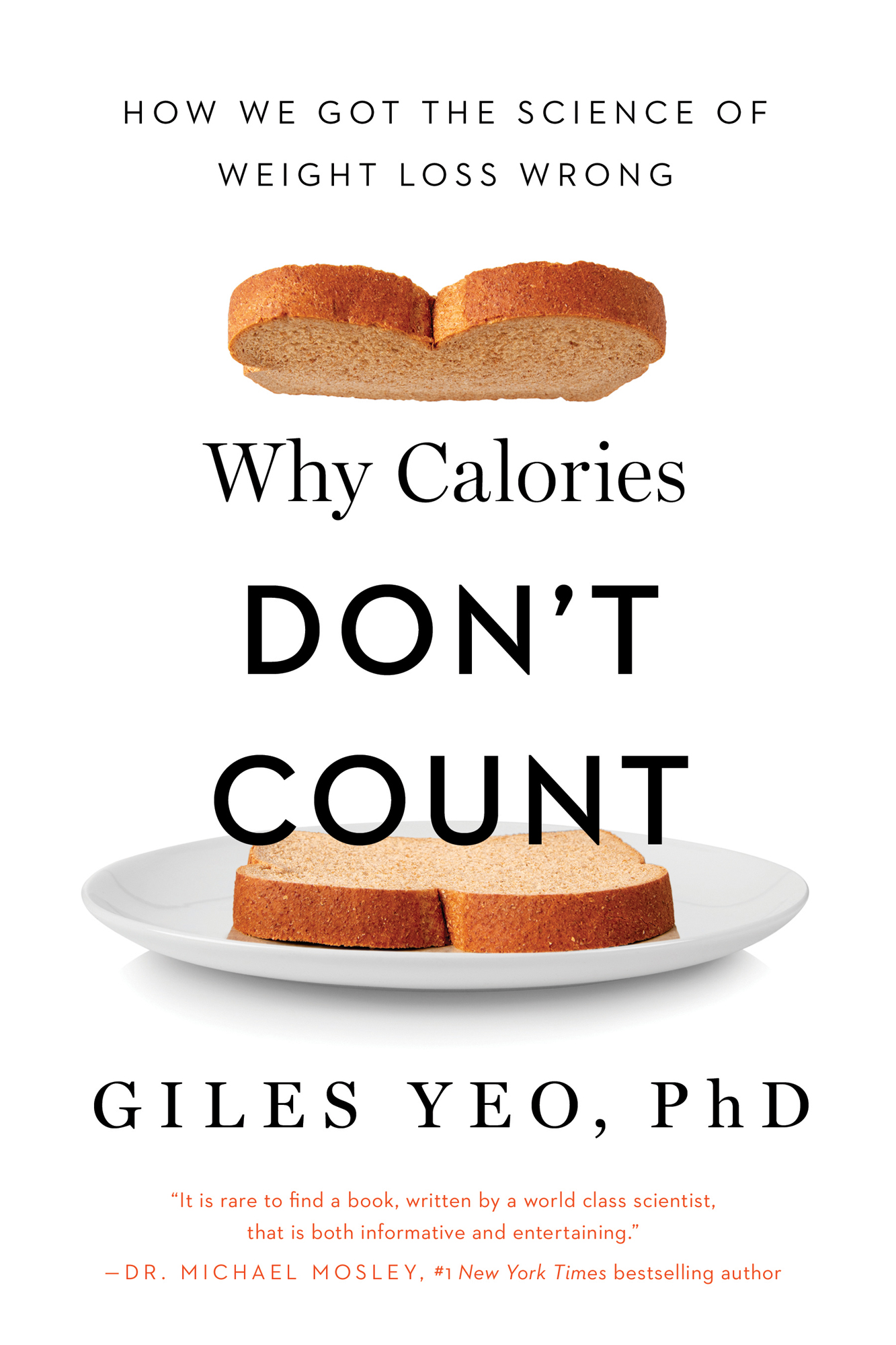Contents
Guide
How We Got the Science of Weight Loss Wrong
Why Calories Dont Count
Giles Yeo, Ph.D.
It is rare to find a book, written by a world class scientist, that is both informative and entertaining.
Dr. Michael Mosley, #1 New York Times bestselling author
WHY CALORIES DONT COUNT
Pegasus Books, Ltd.
148 West 37th Street, 13th Floor
New York, NY 10018
Copyright 2021 by Giles Yeo, PhD
First Pegasus Books cloth edition December 2021
All rights reserved. No part of this book may be reproduced in whole or in part without written permission from the publisher, except by reviewers who may quote brief excerpts in connection with a review in a newspaper, magazine, or electronic publication; nor may any part of this book be reproduced, stored in a retrieval system, or transmitted in any form or by any means electronic, mechanical, photocopying, recording, or other, without written permission from the publisher.
Cover design by Faceout Studio, Spencer Fuller
Cover imagery by Getty Images
ISBN: 978-1-64313-827-5
Ebook ISBN: 978-1-64313-828-2
Distributed by Simon & Schuster
www.pegasusbooks.com
Still for Jane
INTRODUCTION
I love the song Jack and Diane by John Cougar Mellencamp. This little ditty, released in 1982, wistfully looks backwards at the lost thrill of youth from the reality of adulthood. I say this not to be depressing, nor to imagine some rose-tinted fantasy about halcyon days gone by. I dont know about you, but my thrill of youth was filled with teenage angst and wasted time spent worrying about things that once meant the world, but given the perspective of time, I now know to matter very little at all.
There are, however, two things that many of us do miss about being younger: health and weight. The former, which has been ebbing away, and the latter, which has been gained inexorably over time. The titular Jack and Diane from the song were young and pretty; they played American football and ate chilli dogs outside diners without a thought, and probably managed to stay as skinny as rakes with no effort whatsoever. However, like myself, Jack and Diane are now in their late-forties, and within sight of the half-century mark. All they need to do is look at a doughnut and the weight appears to pile on. They try to work out when they can, but Jack now has a dodgy right knee, and Dianes right elbow is giving her grief. Also, those hangovers just seem to hang on longer than they used to (OK, I admit that this is me projecting here). Crucially, Jack in particular is putting fat on around his stomach area, getting a beer belly, and at his forty-year health check-up was told that he had cholesterol levels that were ticking upwards and that he was now at serious risk of developing type 2 diabetes. As for Diane, her blood pressure is a little high, she has a family history of heart disease, and she never managed to lose the baby weight she put on when she was pregnant and her baby is just about to head off to university! (Im not necessarily sure this is, narratively, where John Mellencamp was heading with the song, but work with me here, folks.)
Bottom line is, Jack and Diane have been told by their doctor that they both need to try to lose some weight if they want to reduce their risk of disease and increase their chances of a healthy beginning to their next fifty years. They know this, of course; they can look in the mirror. However, between the two of them, they have pretty much tried most of the latest diets going, and the weight has simply been stubborn to shift and even tougher to keep off, not for want of trying.
Just keep a close eye on your calories to make sure you are eating less, and the weight will come off, advised their doctor.
But, doctor, we are doing that! Its so difficult!
You just have to try harder. Do you want to live to see your grandkids?
Ooof. Low blow there.
Many of you would have had a similar conversation, if not with your doctor, then with your partner, or parent, or child, or perhaps a well-meaning (maybe ex) friend.
Just count your calories and the weight will come off. Easy-peasy.
Calorie information is of course ubiquitous. Every item of food that is packaged in any way raw, cooked, baked, pickled, fermented, cured, dried or frozen by law has to come with information about the number of calories contained within. Many restaurants, be they sit-down, fast food or take-out, provide the caloric content of their meals on their menus. The same is also true for recipes found in many cookbooks and online. We are conditioned to treat this information as gospel; counting, cutting, intermittently consuming and, if you believe some companies or food gurus out there, magically making them disappear. At times, calories can make us either feel good or bad; or sometimes even good and bad at the same time. Some of us are judged for consuming too many calories, others are judged for consuming too few. We all need calories to live, yet many people feel (or are made by others to feel) guilty about consuming them. While people around the world are dying because they dont get enough calories, many MORE (as of the past few decades at least) are dying because they ingest too many.
Heres the thing that most people have no idea about. ALL of the calorie-counts that you see everywhere today are WRONG.
OK, hold your horses, everyone. Before yall start @-ing me, which is clearly the thing to do these days, please allow me to clarify. No one out there is actually lying or making up numbers. What Im talking about is the concept of caloric availability. The important question to ask is not how many calories are in your food, but rather how many available or usable calories, through digestion and metabolism, will your body be able to extract from this food? It is surprising to many, but the total number of calories in a food is not the same as the number of calories we are able to use, not even close.
Basically:
- A the number of calories actually in the food (does not equal)
- B the number of calories on the side of the pack (does not equal)
- C the number of usable calories we finally get out of the food
In the first four chapters of this book, I will unpack the equation above. I will explore the calorie, what it is, its history, how it is measured, and where those ubiquitous counts that adorn our food packaging have come from. Next, Ill explain what happens after food enters our mouths; how it is digested and broken into its constituent parts of protein, fat and carbs; and how these are eventually metabolised to generate energy. Then Ill look at what this energy that we have extracted from our food is used for. In the following two chapters, I explain how this principle of caloric availability underpins all of the most successful weight-loss diets, even if not by name (a rose by any other name). The system of caloric availability brings all diet plans under one umbrella, while also helping you to actually understand WHY and HOW different diets work. In the final three chapters, I explore the modern phenomenon of ultra-processed food and its societal implications, as well as how you can begin to leverage caloric availability in your day-to-day life.
Once you understand the elegant simplicity of the calorie equation, you will be able to navigate the supermarket shelves and menus more confidently and begin to look at food, from lentils to a fillet steak to a slice of cake, in a different way. Its my hope that understanding the true science of weight loss will empower you to make healthier food choices.


